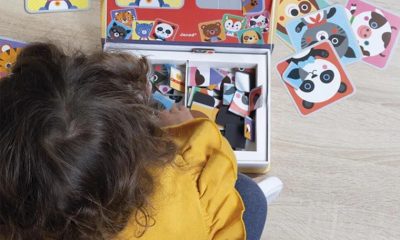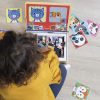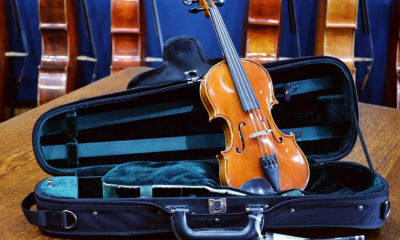Toys
Nurturing Development: The Benefits of Baby Toys for Sensory Play
Babies get to know the world around them through their senses. Having plenty of opportunities to engage in sensory play in the early stages of development is crucial for them. They can explore new textures, smells, and sounds through sensory play, which fosters their cognitive and sensory processing skills while piquing their curiosity and broadening their understanding of the world.
What Is Sensory Play?
Quite simply, it’s any play activity that stimulates your child’s senses. These refer to the primary senses like touch, smell, sight, sound, and taste—as well as motor skills, balance, and spatial awareness. Even common everyday activities babies engage in can be considered as sensory play such as playing with their food or putting their hands in their mouths.
Types of Baby Toys That Promote Sensory Play
Rattles
Some of the earliest toys that expose babies to the cause-and-effect relationship are rattles. These crucial baby toys also stimulate kids’ hearing and help train hand-eye coordination. Since rattles are lightweight and designed for children to hold in their hands, make sure to choose something that’s made of natural and toxin-free materials. For instance, rattles made of durable beech wood are lightweight and safe for babies to put in their mouths.
Sensory Shapes
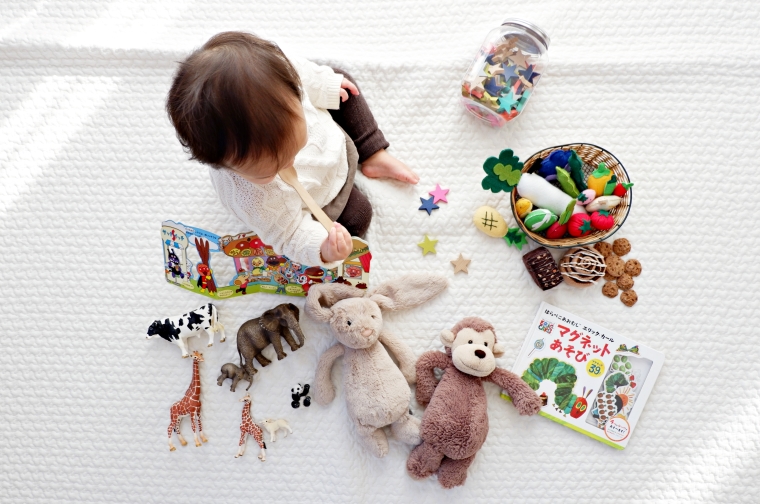
Naturally, the best baby toys for sensory play are tactile, colourful, and enjoyable! A set of sensory shapes features objects in a variety of sizes, shapes, textures, and colours to improve tactile and visual stimulation. They are also constructed of soft, squishy rubber or textile materials so teething babies can securely chew on them.
Teethers
Playthings on which newborns can gnaw can offer both relief and sensory stimulation. The bright colours, rattle, and safe mouthing features of many teething toys make them an excellent option for a variety of sensory play experiences.
Fidget Toys
In addition to keeping little fingers busy, fidget toys provide a plethora of opportunities for open-ended play. Baby can grab, pop, and twist the colourful shapes for a fun tactile experience, and they will love the captivating high-contrast patterns and rattle sounds that support auditory and visual development.
Montessori Toys
If you thought your newborn was too young to play, think again! There are plenty of Montessori sensory toys for newborns that will help them develop their grasping strength and vision. Each item is designed by an educator using non-toxic ink, sustainably sourced wood, and food-grade silicone.
Cloth Books
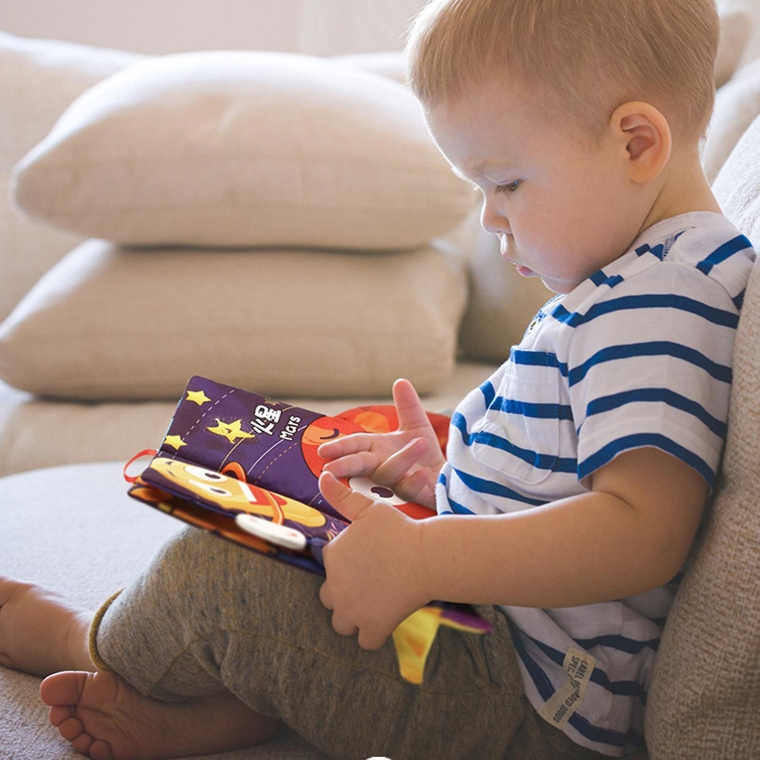
Bond with your little one by going over a cloth book that tells a cute story. Cloth books are a sensory delight for babies. Featuring colourful elements and made of soft, baby-safe fabrics, these books are perfect for the crib, stroller or car seat. They are also ideal when you want to promote some tummy time. The different textures of fabrics, embroidered images and even integrated squeakers and rattles make for quite a sensory adventure.
What Are the Benefits of Sensory Play for Children’s Development?
Fine and Gross Motor Skill Enhancement
In the early stages of life, babies are actively developing their motor skills. Sensory play, with its diverse activities that involve touch, manipulation, and movement, plays a crucial role in honing both fine and gross motor skills. Activities such as squeezing textured toys or crawling through tunnels contribute to the strengthening of hand muscles and the improvement of coordination.
Cognitive Development
Babies are naturally curious, and sensory play provides a rich environment for cognitive development. Exposure to various sensations, such as feeling different textures, observing changing colours, or hearing sounds, helps babies build neural pathways. These early experiences lay the foundation for future learning, creativity, and problem-solving skills.
Emotional Regulation
Sensory play is an essential tool for babies to understand and express their emotions. Engaging in various sensory activities creates a safe space for them to explore and regulate their feelings. Whether experiencing the calming effect of kinetic sand or the excitement of a textured sensory bin, these activities contribute to healthy emotional development.
Social Interaction and Bonding
Many sensory activities are best enjoyed with a caregiver, fostering social interaction and bonding between parent and child. Shared sensory experiences create opportunities for caregivers to connect with their babies on a deeper level. This interaction not only establishes trust but also provides a sense of security for the baby, promoting overall emotional well-being.
Holistic Development
Sensory play is not just about messy fun; it is a crucial aspect of a baby’s holistic development. From refining motor skills to fostering cognitive growth and emotional regulation, the benefits of sensory play are vast and impactful. Caregivers, by creating opportunities for babies to engage their senses, are laying the groundwork for a lifetime of curiosity, exploration, and healthy development.
To Sum Up
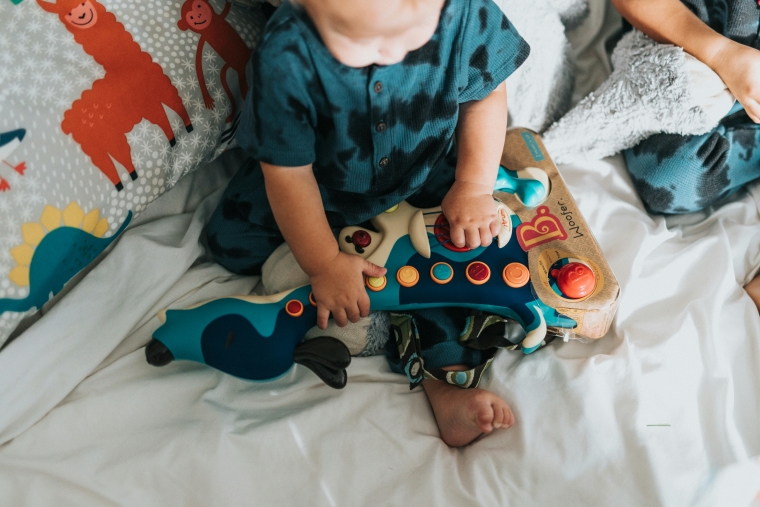
The importance of sensory play for babies goes beyond the excitement of discovery; every facet of sensory play enhances a young child’s developmental experience, ranging from physical aptitude to mental and emotional health. Parents and carers who engage infants in sensory play are also actively fostering the children’s future curiosity, creativity, and growth.
As a proud Pisces known for the selflessness, Olivia joined up the blog fascinated by the idea she can help readers with info on topics and their related benefits like health and beauty, travel, food and drinks. When not writing, she likes to call it a day reading comic books in the company of her Tonkinese cat Chatty or binge-watching The Big Bang Theory with her SO like the nerd she is.



